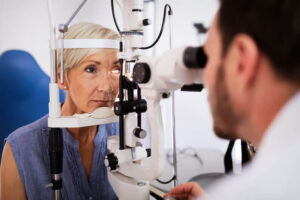 Glaucoma, a group of eye conditions that damage the optic nerve, is a leading cause of irreversible blindness in older adults. Understanding its signs, symptoms, and risk factors is crucial for early detection and effective management.
Glaucoma, a group of eye conditions that damage the optic nerve, is a leading cause of irreversible blindness in older adults. Understanding its signs, symptoms, and risk factors is crucial for early detection and effective management.
What Is Glaucoma?
Glaucoma is a progressive eye disease characterized by increased pressure within the eye, leading to optic nerve damage and vision loss. It often develops slowly and asymptomatically, making regular eye exams essential for early detection.
What Should Seniors Know About Glaucoma?
Seniors should be aware that glaucoma can affect anyone, but the risk increases with age. Without timely intervention, it can lead to permanent vision impairment or blindness.
Signs And Symptoms To Look For With Glaucoma
While glaucoma typically progresses silently, some warning signs may include:
- Gradual loss of peripheral vision
- Blurred vision
- Halo effects around lights
- Severe eye pain or headache
If experiencing any of these symptoms, seniors should seek immediate medical attention.
Who’s At Risk For Developing Glaucoma
Individuals with a family history of glaucoma, older adults over the age of 60, people of African, Hispanic, or Asian descent, and those with certain medical conditions like diabetes or hypertension are at higher risk.
How Is Glaucoma Treated?
Although there is no cure for glaucoma, early detection and treatment can help slow its progression and preserve vision. Treatment options may include medicated eye drops, oral medications, laser therapy, or surgery to reduce intraocular pressure.
Can You Prevent Glaucoma?
While glaucoma cannot be entirely prevented, seniors can take steps to reduce their risk and protect their vision. Regular eye exams, maintaining a healthy lifestyle, managing underlying medical conditions, and avoiding smoking are crucial preventive measures.
In conclusion, awareness of glaucoma’s signs, symptoms, and risk factors is essential for older adults. By prioritizing regular eye exams and adopting healthy lifestyle habits, seniors can detect glaucoma early and take proactive steps to preserve their vision.
